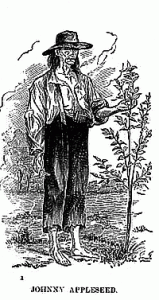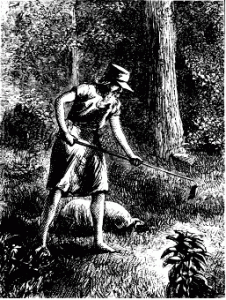 By Scott T. Allison and George R. Goethals
By Scott T. Allison and George R. Goethals
The past two decades have witnessed a burgeoning public interest in protecting our planet and its limited resources. The phrase going green was coined in the 1990s to describe the mindset and practice of caring for the environment, with green symbolizing a respect for plant life and other gifts of nature. A growing wave of companies in all sectors of our economy are now embracing environmentally safe practices. Going green is the right thing to do, and companies find that a green philosophy even saves them money, too.
One of the first individuals to bring the value of preserving nature to the public’s attention was Henry David Thoreau, who recognized the dangerous impact of the industrial age on the environment. Over 150 years ago, Thoreau said, “In wilderness is the preservation of the world.” He understood the clash between modernization and environmentalism. “Most of the luxuries and many of the so-called comforts of life are not only not indispensable, but positive hindrances to the elevation of mankind,” he opined.
Thoreau was influenced by one man from the early 19th century whose impact on conservation and naturalism was so great that he became a true American legend. This icon’s name was John Chapman, although he later became better known as Johnny Appleseed. Chapman was born on a small farm in Massachusetts, and as a child his favorite place to spend time was his father’s apple orchard.  As a young adult, he moved west toward Ohio. Along the way and in Ohio, he planted apple seeds in fenced orchards, sold them, and became somewhat of a wanderer who preached the value of protecting plant and animal life.
As a young adult, he moved west toward Ohio. Along the way and in Ohio, he planted apple seeds in fenced orchards, sold them, and became somewhat of a wanderer who preached the value of protecting plant and animal life.
Chapman was described in a magazine article as “a small wiry man, full of restless activity.” He sported long black hair and “keen black eyes that sparkled with a peculiar brightness.” He referred to himself as merely a “gatherer and planter of apple seeds.” Chapman played a crucial role in America’s population shift westward during the early 19th century. His apple orchards provided early pioneers with a self-reliant means of generating income from growing their own apples. Fresh apples and apple butter were staples in the diets of the early American settlers. Apple cider could be traded for flour, livestock, sugar, and other staples in cash-poor settlements. The presence of apple orchards also signified that a piece of land was claimed, serving as the equivalent of a sold sign for all to see.
Chapman enjoyed success with his business model, but he remained a humble man who lived the simplest of lives. He spent the majority of his adult life living with nature and planting apple nurseries. Chapman clothed himself with the most threadbare garments he received on barter for his apple trees, often giving away the better clothes to the less fortunate. His generosity and love of nature were legendary, earning him the moniker Johnny Appleseed. He is remembered today as the patron saint of American horticulture.
In our research on heroes, we’ve found that a certain category of heroes consists of individuals who attain a mythic status. We call these people transfigured heroes. Examples of heroes of this type include Amelia Earhart, Robin Hood, Pretty Boy Floyd, St. Patrick, Merlin and Sherlock Holmes. Transfigured heroes take on a legendary significance. Their contributions are largely constructed, exaggerated, or glorified into legend. We need heroes of this type. They are larger than life. And as in the case of Johnny Appleseed, they educate and inspire us with their selfless good works.
– – – – – – – – –
Do you have a hero that you would like us to profile? If so, please contact Scott Allison at sallison@richmond.edu.
Another hero from Massachusetts. I love it when that happens. 😀
Johnny Appleseed is indeed a hero who has passed the boundary from History to Folklore. He’s the original Hippie, or at least one of them. I think it’s great that you guys have chosen to write about him here; even though you refer to him as the patron saint of American horticulture, I don’t think he is as well remembered as he should be. As you say, environmentalism these days has become an important topic, trending toward a life-and-death issue. Johnny Appleseed deserves to be elevated from a quaint character in folklore to top-level American icon. Hopefully, the Heroes Blog will contribute to that.